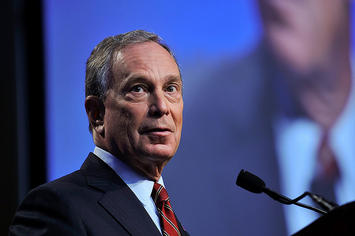
After being elected New York City’s mayor in 2002, Michael Bloomberg quickly expanded on the city’s progress during the 1990s. He combined predecessor Rudolph Giuliani’s reforms in welfare and policing with his own. He rezoned land for needed housing, reduced public school inefficiencies, and advanced major transportation projects like the 7-train extension and rapid buses. Along with these, he pioneered changes in the urban fabric—from the High Line Park to an automobile-free Times Square—that may have seemed insubstantial to outsiders, but were appreciated by New Yorkers.
These and other measures supported Bloomberg’s reputation as a pragmatic-businessman-turned-public-servant who could generate economic dynamism in a city often hostile to it. Journalists described Bloomberg as, for example a “centrist” and data-driven “technocrat” who was “beholden to no one.” The mayor quickly gained national credibility, and was even mentioned as a possible independent presidential candidate.
Now, as Bloomberg nears the end of his third term, the thought of him having this platform seems far less attractive. Just as the term itself violated local term limit legislation (that was overturned before his election), the policies he’s enacted show that his ideal model of government is not just one that spurs growth and delivers services, but that excessively polices private behavior, setting a dangerous precedent for urban America.
The best-publicized of these was Bloomberg’s recently-defeated measure to ban large sodas. But this only echoed other products the board of health has targeted, including trans-fat in cooking oils, Styrofoam containers, and salt. He extended New York's decade-long ban on cigarette smoking in bars to some other public spaces.
These measures may seem like benevolent ways to protect New York’s citizens from themselves. But they underlie a broader willingness to intrude in other ways. For example, following the Kelo v. New London Supreme Court case, Bloomberg enthusiastically supported eminent domain for land transfers in both Brooklyn's Atlantic Yards and by Columbia University in Harlem.
Bloomberg has also expanded New York’s unpopular stop-and-frisk policy, which allows police to search people not after arrest, but based on “reasonable suspicion.” The policy was begun in the 1970s as a way for police to intervene in overtly threatening situations. But under Bloomberg it has been used reflexively five million times. It overwhelmingly targets minorities, and has proven to be poor at accomplishing its stated goal of collecting illegal guns. According to an analysis by Columbia University law professor Jeffrey Fagan, the first 4.4 million stop-and-frisks under Bloomberg yielded under 6,000 guns, (just over 0.01% of stops).
Some of the same behaviors discouraged by Bloomberg are violated in his personal life. His insistence that New York rigorously combat global warming is ironic, given that he frequently flies private jets to homes in Bermuda, London, and Colorado. He blasted attempts by businesses and unions to roll back campaign finance reform, even after forming his own super-PAC for favored Congressional candidates, and using hundreds of millions of his personal fortune on his own mayoral campaigns. This same chutzpah is evident in his endless bloviating on national issues. While sometimes refreshing, it seems inane coming from a jet-setting mayor who, in lusting for national attention, ignores his own city. Although unemployment has decreased recently, it still remains over 8%, above the national average. The city continues to suffer from high taxes and slow job growth. Income inequality in Bloomberg’s New York has also risen at well above the national rate.
Bloomberg doesn’t necessarily have control over all of this. But he can at least control what appears as his administration’s priorities. Over the course of his mayoralty, they seem to have shifted from addressing practical aspects of city management to pet peeves about citizen behavior. This has brought New York City negative publicity, and grown offensive to many of those who value personal freedom, with all its flaws, over the tedious and destructive encroachment of “technocrats.”
Flickr photo from Be the Change, Inc. by Gillooly/PEI.
Scott Beyer is traveling the nation to write a book about revitalizing U.S. cities. His blog, Big City Sparkplug, features the latest in urban news. Originally from Charlottesville, VA, he is now living in different cities month-to-month to write new chapters.












